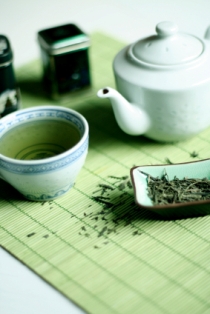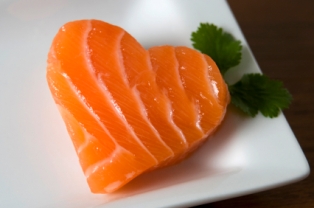Green Tea: Great for Prostate
Why Dads Need to Be Drinking More Green Tea
This past Sunday was pretty eventful day on the calendar.¬† Not only was it the first day of summer, but it was also Father‚Äôs Day.¬† And in an effort to honor the most influential man in most of our lives, Major League Baseball and the boys of summer wore baby blue wristbands and ribbons to raise awareness for prostate cancer.¬† Prostate cancer is second only to lung cancer in its prevalence among men ‚Äď with 240,000 new diagnoses expected this year alone.
As great and admirable as this was, MLB teams could have taken the honorific a step further by filling those Gatorade coolers in dugouts with some iced green tea, as a recent study suggests it may slow the progression of prostate cancer.
There are of course lots of changes that take place in the body after prostate cancer diagnosis.¬† One of them is found in the blood‚Äôs serum.¬† There are several types of serums, all of them with alphabet-soup names like hepatocyte and endothelial.¬† These serum levels ‚Äď or what are often referred to as ‚Äúbiomarkers‚ÄĚ in assessing the degree to which prostate cancer has infected someone ‚Äď are high in people who are diagnosed with prostate cancer.
Researchers wanted to see how green tea might impact the aforementioned serum levels of approximately 26 men who were diagnosed with prostate cancer by having them consume green tea capsules for varying amounts of time over the study period (the median time of supplementation was 34.5 days).  The men ranged in age from 41 to 72 years old.
Results indicated that all the men showed reductions in these ‚Äúbiomarkers,‚ÄĚ with some of the serum levels dropping as much as 30 percent!
The active ingredient in green tea believed to play a role in reducing these biomarkers are green tea‚Äôs polyphenols ‚Äď specifically Polyphenon E.
More details of the study are published in the journal Cancer Prevention Research and it was conducted by professors and researchers from Louisiana State University’s Feist-Weiller Cancer Center.
What makes this study so significant is two-fold: 1) It gives further justification of why so many people are gaga for green tea (second only to coffee as the most popular drink in the world) and 2) Its another avenue people have in delaying a cancer that can spread very quickly when not detected early.
Anything that can help delay a virulent strain of cancer should be shouted from the rooftops, especially if it‚Äôs natural.¬† But green tea can do more than just delay its progression.¬† As the study‚Äôs lead researcher himself said, James A. Cardelli, ‚ÄúThere is reasonably good evidence that many cancers are preventable [emphasis added], and our studies using plant-derived substances support the idea that plant compounds found in a healthy diet can play a role in preventing cancer development ‚Ķ‚ÄĚ
As always, more studies need to be done, as the LSU researchers say this study wasn’t randomized, thus somewhat precluding the reliability of the findings.  But the results of this study are similar to one conducted by another research team, which was randomized, and that one was a year in length.  And this study contributes to the smorgasbord of studies and literature involving green tea, all of which show advances in health, vitality and disease avoidance when supplemented into one’s daily diet.
Sources:
sciencedaily.com
usatoday.com
Posted: June 23rd, 2009 under Cancer, Green Tea.
Tags: green tea benefits, green tea cancer benefits, green tea cancer prevention, Prostate Cancer, serum levels
Comments: none


















